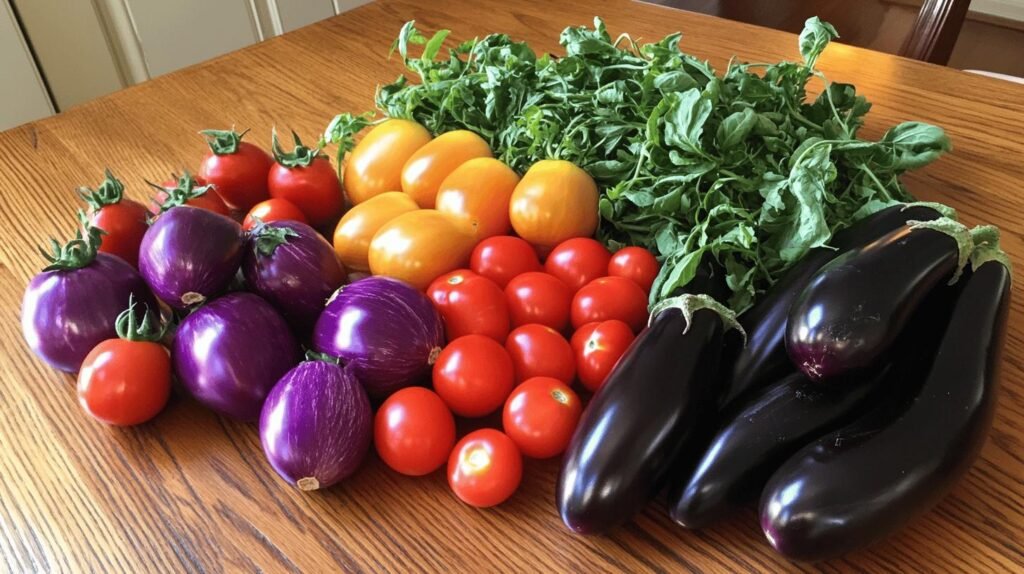TL;DR:
- Rheumatoid Arthritis (RA) Impact: 1.3 million people in the U.S. affected.
- Foods to Avoid:
- Sugar and refined flour
- Red meat
- Processed foods
- Saturated fats
- Omega-6 fatty acids
- High-fat dairy
- Refined carbohydrates
- High-sodium foods
- Corn oil
- Gluten
- Artificial additives
- Alcohol & Caffeine: Limit alcohol; moderate caffeine; avoid late-day caffeine.
- Nightshade Vegetables: May trigger symptoms in sensitive individuals; test by elimination.
- Personalized Diet Plans: Direct primary care enables tailored diet strategies to minimize inflammation.
Ever wonder if what you’re eating might be making your rheumatoid arthritis flare-ups worse? You’re not alone! With roughly 1.3 million people wrestling with RA in the U.S., it’s no surprise that many are looking for ways to manage symptoms better. Here’s the scoop: there are certain rheumatoid arthritis diet foods to avoid because they can trigger those pesky symptoms. Yep, the wrong bite can ramp up inflammation faster than you can say, “ouch!” In this post, we’ll explore which common foods could stir up trouble in your joints, along with some juicy insights to chew on. Let’s dig in and see how what you eat might be affecting your RA and what you should avoid to help you feel your best.
Foods That Trigger Rheumatoid Arthritis Symptoms
Over 1.3 million people in the U.S. struggle with rheumatoid arthritis (RA). Does that number surprise you? Even more surprising is how certain foods impact inflammation and symptoms. Inflammation is a major issue for anyone with RA. Your diet is crucial—either easing or worsening the condition. For instance, foods high in sugar, refined flour, and saturated fats aggravate inflammation. Red and processed meats also contribute due to saturated fats and omega-6 fatty acids. Let’s explore what you should avoid.
Foods to Watch Out For:
- Sugar and refined flour
- Red meat
- Processed foods
- Saturated fats
- Omega-6 fatty acids
These foods increase the body’s inflammatory response. Sugar and refined flour can cause blood sugar spikes, leading to RA flare-ups. Saturated fats in red and processed meats raise cholesterol and cause inflammation. Omega-6 fatty acids, found in many vegetable oils, also contribute if not balanced with omega-3s. This imbalance can worsen joint pain. Avoiding these foods helps manage symptoms and keep RA in check.
The Impact of Processed and Fried Foods on RA

Processed foods are everywhere—they’re convenient and tasty. But if you have RA, these foods mix sugar, salt, and unhealthy fats, worsening inflammation. Advanced glycation end products (AGEs) in fried foods are especially harmful. They heighten inflammation and oxidation, making joints even more painful.
How can you avoid these inflammation triggers? Swap them for healthier options. Instead of chips, try air-popped popcorn. Swap fried chicken for grilled or baked options. Small changes like these reduce inflammation and help your joints. Here’s a handy table:
| Food Type | Harmful Component | Effect on RA |
|—————–|———————|————————–|
| Processed Foods | Sugar & Salt | Exacerbates inflammation |
| Fried Foods | AGEs | Increases inflammation & oxidation |
| Packaged Snacks | Trans Fats | Triggers inflammation |
| Fast Foods | Unhealthy Fats | Aggravates joint pain |
You can keep inflammation in check and enjoy delicious alternatives by choosing healthier options. 🍽️
Reducing Inflammation Through Diet: Foods to Avoid
Want to reduce inflammation with diet? Skip certain foods to help your body relax. High-fat dairy, loaded with saturated fats, can make joints hurt. Choose low-fat or plant-based alternatives. Refined carbs, like those in white bread, raise blood sugar levels, worsening inflammation. High-sodium foods cause water retention, leading to swelling.
Here’s what to avoid:
- High-fat dairy
- Refined carbohydrates
- High-sodium foods
- Corn oil
- Gluten
- Artificial additives
Corn oil and other omega-6-rich oils fuel inflammation if not balanced by omega-3s. It’s like adding fuel to a fire. Gluten can also trigger inflammation in sensitive people and artificial additives may worsen joint pain.
Balance is key. Including omega-3-rich foods like fatty fish or flaxseeds can soothe inflammation. Remember these swaps when meal planning to give your joints some TLC.
Alcohol and Caffeine: Their Role in Rheumatoid Arthritis

Alcohol can complicate RA management. It promotes inflammation and can interfere with RA medications, reducing effectiveness. It’s best to limit alcohol if you have RA. Occasional consumption might be fine, but moderation is key.
- Limit alcohol use
- Choose decaffeinated drinks
- Avoid caffeine late in the day
- Monitor personal reactions
Caffeine can also affect arthritis pain. Too much can disrupt sleep, which is vital for RA management. Poor sleep increases inflammation and joint pain. Opt for decaf and avoid caffeine late in the day. Understanding how your body reacts to these substances helps manage symptoms. Moderation can help you keep RA flare-ups away.
Nightshade Vegetables and Their Effects on RA
Have you heard of nightshade vegetables, like tomatoes, potatoes, eggplants, and peppers? Some people with RA find these veggies worsen symptoms. They contain compounds like solanine, which may trigger inflammation in sensitive individuals.
To test if nightshades are your trigger, eliminate them for a few weeks. If symptoms improve, these vegetables might be the cause. Reintroduce them one by one to see which are the real culprits. This way, you can decide if they’re worth the risk.
Direct Primary Care’s Role in Personalized RA Diet Plans

Ever feel like just a number in healthcare? Direct primary care (DPC) changes that. By excluding insurance companies, DPC focuses on your health needs. It offers personalized care, which is crucial for rheumatoid arthritis (RA). A customized diet can help manage RA without costly insurance.
Why are tailored diet plans effective for RA? They’re designed to minimize inflammation. Doctors can identify problem foods like sugars and saturated fats and suggest alternatives. Imagine swapping red meat for lean protein or choosing gluten-free options. In DPC, your diet strategy targets your unique RA challenges.
Lifestyle changes support RA management. Think of anti-inflammatory foods like omega-3-rich fish or stress-reducing activities. DPC allows you to work closely with your healthcare provider, adjusting your plan as needed. This adaptability helps keep RA symptoms in check so you can live your best life.
Final Words
Jumping right into how diet choices can affect rheumatoid arthritis: Identify the foods that potentially ramp up inflammation and take steps to sidestep them. We discovered how processed and fried foods containing unhealthy fats and sugars can worsen symptoms. Steering clear of high-fat dairy, refined carbs, and gluten does wonders for managing inflammation.
Alcohol and caffeine play tricky roles—moderation is key. Nightshade veggies might be pesky for some, so watching reactions is crucial. Incorporating these changes can lead to a better quality of life!
FAQ
What are the best foods for rheumatoid arthritis?
A: The best foods for rheumatoid arthritis include fish rich in omega-3s, leafy greens, berries, nuts, and olive oil. These delicious options can help reduce inflammation and support joint health.
What foods cause arthritis flare-ups?
A: Foods that can cause arthritis flare-ups often include sugar, refined flour, red meat, processed foods, and omega-6 fatty acids. Keeping these to a minimum can help keep symptoms in check.
Which foods make rheumatoid arthritis worse?
A: Foods high in sugar, refined flour, and saturated fats can worsen rheumatoid arthritis. These ingredients increase inflammation, making symptoms more severe and discomforting.
What are the five worst foods for rheumatoid arthritis?
A: The five worst foods for rheumatoid arthritis are sugar, refined flour, red meat, processed foods, and foods high in omega-6 fatty acids. They’re inflammation culprits, so cut back on these ASAP!
7-day meal plan for rheumatoid arthritis?
A: Creating a balanced meal plan with anti-inflammatory foods is key. Focus on fish, fruits, veggies, and whole grains. Consult a dietitian or healthcare provider for a tailored plan to fit your needs.
Rheumatoid arthritis diet and exercise tips?
A: Maintaining a healthy diet with anti-inflammatory foods and regular exercise can help manage rheumatoid arthritis. Stay active and choose activities that don’t stress your joints—like swimming or cycling.
What are 5 vegetables to avoid for arthritis?
A: Vegetables in the nightshade family, such as tomatoes, potatoes, bell peppers, and eggplants, may need to be monitored. Some people notice increased inflammation—try cutting them out as a test.
What is the role of alcohol and caffeine in rheumatoid arthritis?
A: Alcohol can promote inflammation and disrupt RA medication, so keep it minimal. Caffeine, if consumed excessively, might interfere with sleep and worsen symptoms. Moderation is your best friend here.
How can direct primary care help with RA diet plans?
A: Direct primary care offers personalized dietary advice for RA, supporting effective diet strategies. By collaborating with your healthcare provider, you can design a plan that fits your lifestyle and goals.

